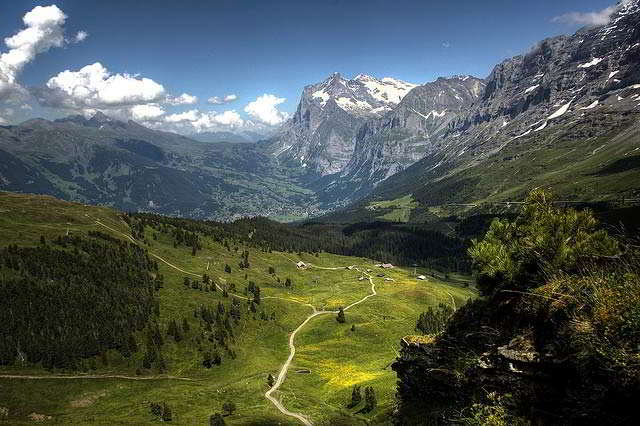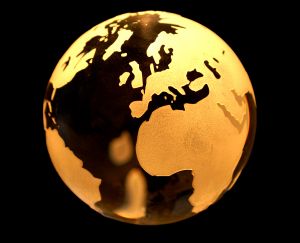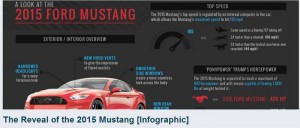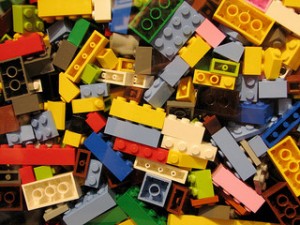 The latest instalment in this occasional column concerns that most unique of countries, Switzerland.
The latest instalment in this occasional column concerns that most unique of countries, Switzerland.
All countries’ cultures are in one way or another influenced by their geography, but in Switzerland that influence is of paramount importance. The country sits at the centre of the Alps, the highest mountain range in Europe. The Alps are, in turn, a natural barrier between northern Europe and the Mediterranean, from which trade routes open up to Africa and Asia.
Humping goods through mountains is never a commercial dream come true (witness Hannibal and his elephants), so Switzerland will never be Route A. However because of its unique position at the junction between Europe’s uber-economies of France, Germany and Italy, Switzerland has made an excellent job of being Route B.
But where does this leave Swiss CSR in the modern, globalised trade context?
Guns in Cars
To answer these questions I turned to Julien Goy, Scientific Associate at e2co. However, before I tell you about Julien’s thoughts, I need to address some other stereotypes which may spring readily to your mind when thinking of Switzerland.
Hannibal — done. Chocolate … not even interested. Banks .. we’re getting there. Jeremy Clarkson …
JEREMY CLARKSON??? What on earth has that notorious anti-eco petrolhead got to do with Switzerland, let alone CSR?? Let me explain …
There was an episode of Top Gear (my son is a fan (ahem .. well, I do write for Gas2 as well…)) where Jeremy Clarkson drove into Switzerland and demonstrated the ludicrous nature of the environmental laws there. His point was twofold:
a) I have to obey the stupidly low speed limit which is utterly stupid because I’m driving a stupid supercar which should be revving high and screaming round these roads at stupid high speeds except it is stupidly illegal for me to do that
b) BUT when the policeman stops me for traffic offences, he will give me a ticket for breaking some stupid traffic law but will not mention the stupid machine gun sitting in plain view in the stupid passenger seat. How come I drive away having been ticketed for speeding, but am not even questioned about whether I’m on my way to commit a stupid bloody murder?
That, in a nutshell, is the Swiss dichotomy : exceptionally strict environmental laws, yet exceptionally liberal in other areas.
Now for the CSR
So we return to Julien, and his thoughts on CSR.
“There are,” he says “two main elements that ‘shape’ the perception and the practice of CSR reporting : the ancestral distrust of transparency; and the strong presence of environmental issues.”
Swiss culture, he explains, is notoriously secretive. The country has four official languages — German, Italian, French and Romansh (ie. Swiss). With all of these people bickering over who should own strategically important mountain passes, it’s no wonder the local inhabitants have learnt to keep their cards close to their chests.
However, there is also an very strong environmentally friendly streak running through Swiss society. This, more than anything else, demonstrates the Swiss dichotomy. “Swiss people are really concerned about environmental issues, ” Julien says. “We recycle a lot, we love our landscapes and nature in general”.
I visited Switzerland this year on a passing visit along that ancient trade route from France to Italy. In one day I was overcome by its natural beauty, where cloud topped mountains shoulder onto green and fertile valleys. If there was ever a European country which encapsulates the need to balance sustainability according to its natural resources, Switzerland is it.
However, as Julien implies, the Swiss habit of opaqueness permeates all walks of life.
“I truly think that the banking secrecy has a real influence on CSR reporting,” he says. “In Switzerland, people are not used to be transparent. It takes time in my country to change the mindsets.”
Here’s To The Future
And there’s the rub. Violation of the country’s strict, almost harsh, environmental laws can lead to severe financial and social penalties. Yet the country’s main industry .. banking … is built upon the premise that everything is secret and nothing can be revealed.
Could this change? Julien Goy thinks so. “There is a growing demand for information on sustainability,” he says.
Here, in a country where “rich people save their treasure”, life is slowly changing to embrace CSR. Although Swiss industry is built upon its secretive banking industry, a balance has to be struck between the financial advantages the country’s traditional neutrality has forged, and the transparency which sustainability demands.
If that balance can be struck in Switzerland, it can be struck anywhere, which is a good reason to keep a weather eye on Swiss CSR and watch how it develops into a world leader.
Picture Credit: Kleine Sheidegg hiking trails by Ed Coyle Photography under Creative Commons No Derivative Works License.
A former CTO, Chris has a broad and varied background. He’s been involved with blue chips, consultancies & SMEs across a wide variety of sectors and has worked in Europe, the Middle East and Australia.
In 2007 he decided to combine his knowledge of business and IT with his passion for all things sustainable and has been busy writing ever since. However, his greatest ambition remains to brew the perfect cup of coffee.


